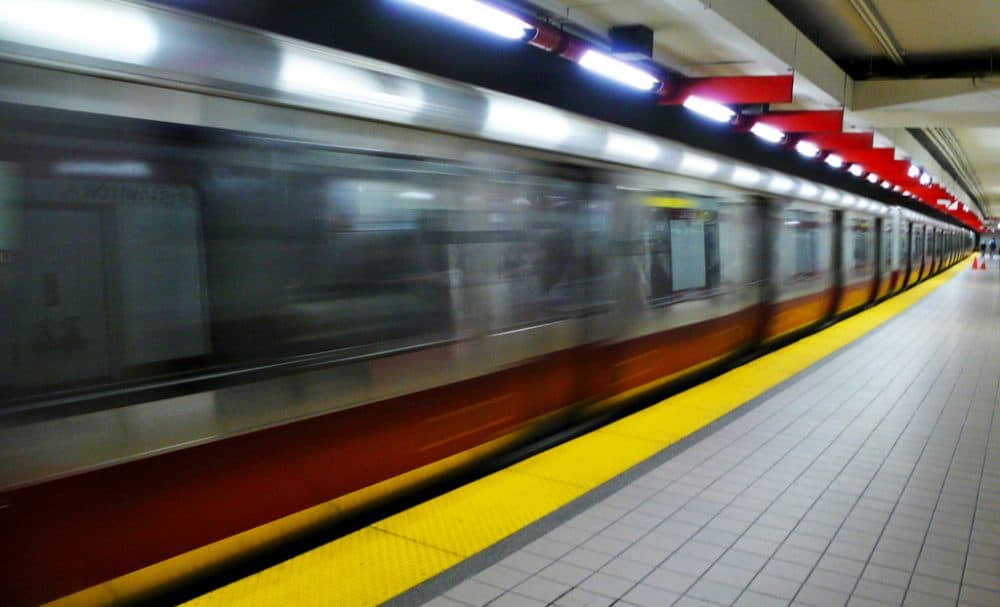Advertisement
MBTA Budget Gap Threatens 'Extraordinarily Inefficient' Late Night Service

Blink and you might miss it.
The MBTA's late night weekend service, which was launched less than two years ago to much fanfare, appears to be on the chopping block.
The transit agency's control board is looking for ways to close a projected $242 million budget shortfall for the next fiscal year, and several board members aren't pleased with how the T's current late night service is performing.
"It’s incredibly expensive and not that many people are utilizing it," fiscal control board member Monica Tibbits-Nutt said during a meeting of the board on Wednesday.
Late night service was piloted in 2014 and continued in 2015 but was scaled back -- providing service on all subways lines and 10 key bus routes until 2 a.m. on Friday and Saturday nights.
The service cost the T $14.4 million to operate last fiscal year, and provided 1.4 million trips — about 0.4 percent of all bus and subway trips, according to the T. That amounts to a $13.38 subsidy per late night trip, the T says, compared to an average per trip subsidy across the system of $2.07.
"I think at some point we have to say the experiment was not successful and we have to make that tough call.”
MBTA GM Frank DePaola
Frank DePaola, the T's current general manager, said Wednesday that the T had hoped that private industry would subsidize the service, but that "never really materialized."
"We’ve been bearing all of the cost ," DePaola said. "I think at some point we have to say the experiment was not successful and we have to make that tough call.”
Control board chair Joseph Aiello called the service "extraordinarily inefficient" and said he was open to cutting it.
Board member Steven Poftak noted that late night service means less time for overnight maintenance work. And the T needs a lot of maintenance.
"We’re somewhere around $7 billion ... before we get to state of good repair," Poftak said, referencing the agency's maintenance backlog. "The notion that we’re going to knock that mountain down in two-and-a-half-hour service windows seems like an impossible task."
Wednesday's conversation on late night service started with a presentation by Brian Shortsleeve, the T's chief administrator. He highlighted three service areas that are particularly expensive to operate but have low ridership — weekend service on the commuter rail, late night service and service on 28 bus routes with particularly low ridership.
Overall, the T spends $52 million annually on these three service areas, according to Shortsleeve.
"It's a small portion of the rides and it's a big cost driver," he said.
While board members seemed interested in finding ways to cut costs in the other two service areas, it was late night service that they seemed most ready to end completely.
"I think people had anticipated that once you provide the service the market would come and the market would manifest itself," GM DePaola said. "Well, that just doesn’t seem to have happened."
Supporters of the extended hours had hoped it would create a more vibrant nightlife in the city, and also give workers with unusual hours a cheaper way to get home.
The control board on Wednesday didn't decide what to do about the late night service, but it's expected to make recommendations in December about how to close the MBTA's projected budget gap.
This wouldn't be the first time a T experiment with late night service failed.
The T launched the Night Owl bus in 2001, which ran buses along train routes until 2:30 a.m. It was abandoned in 2005 due to low ridership.
